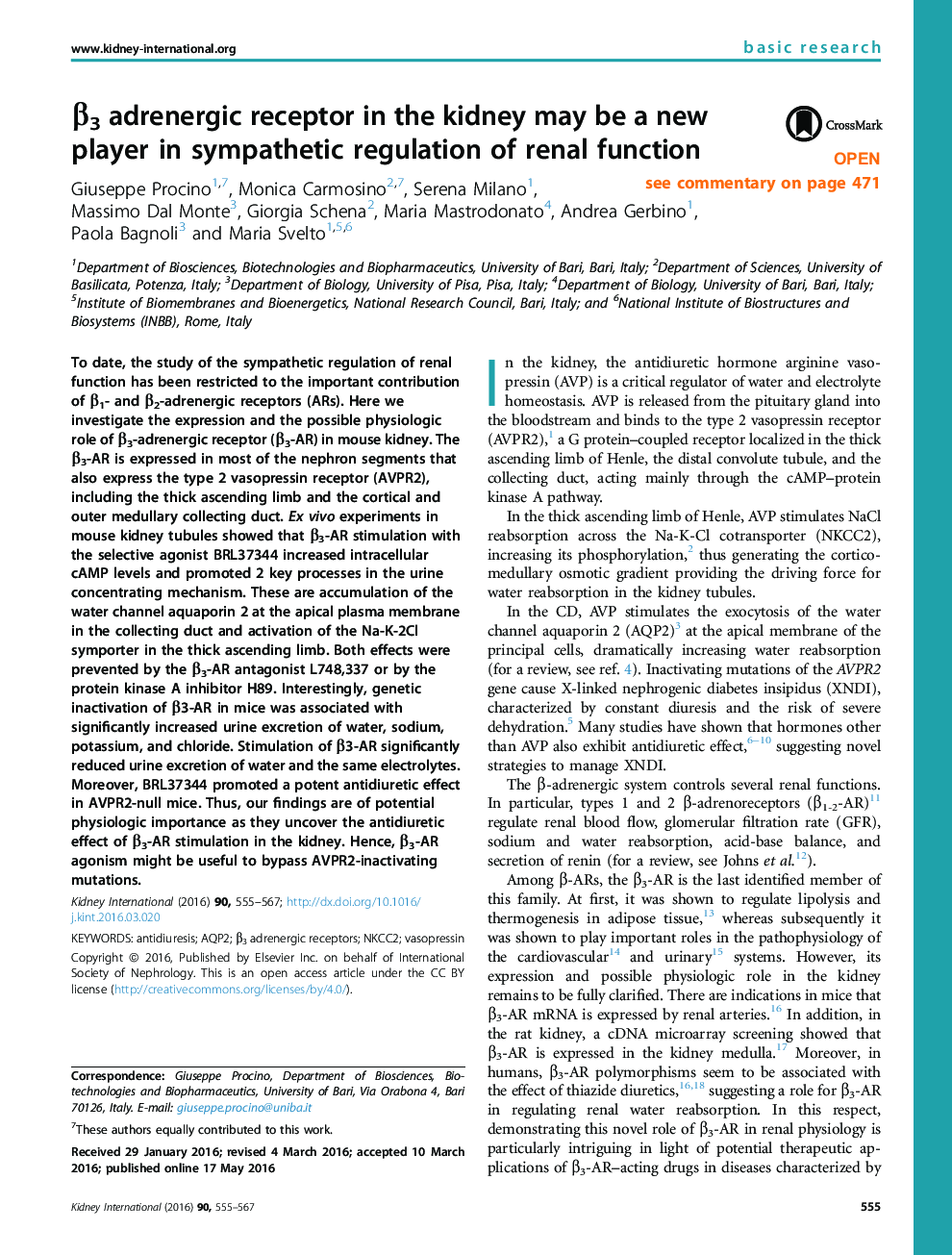| Article ID | Journal | Published Year | Pages | File Type |
|---|---|---|---|---|
| 6161156 | Kidney International | 2016 | 13 Pages |
To date, the study of the sympathetic regulation of renal function has been restricted to the important contribution of β1- and β2-adrenergic receptors (ARs). Here we investigate the expression and the possible physiologic role of β3-adrenergic receptor (β3-AR) in mouse kidney. The β3-AR is expressed in most of the nephron segments that also express the type 2 vasopressin receptor (AVPR2), including the thick ascending limb and the cortical and outer medullary collecting duct. Ex vivo experiments in mouse kidney tubules showed that β3-AR stimulation with the selective agonist BRL37344 increased intracellular cAMP levels and promoted 2 key processes in the urine concentrating mechanism. These are accumulation of the water channel aquaporin 2 at the apical plasma membrane in the collecting duct and activation of the Na-K-2Cl symporter in the thick ascending limb. Both effects were prevented by the β3-AR antagonist L748,337 or by the protein kinase A inhibitor H89. Interestingly, genetic inactivation of β3-AR in mice was associated with significantly increased urine excretion of water, sodium, potassium, and chloride. Stimulation of β3-AR significantly reduced urine excretion of water and the same electrolytes. Moreover, BRL37344 promoted a potent antidiuretic effect in AVPR2-null mice. Thus, our findings are of potential physiologic importance as they uncover the antidiuretic effect of β3-AR stimulation in the kidney. Hence, β3-AR agonism might be useful to bypass AVPR2-inactivating mutations.
